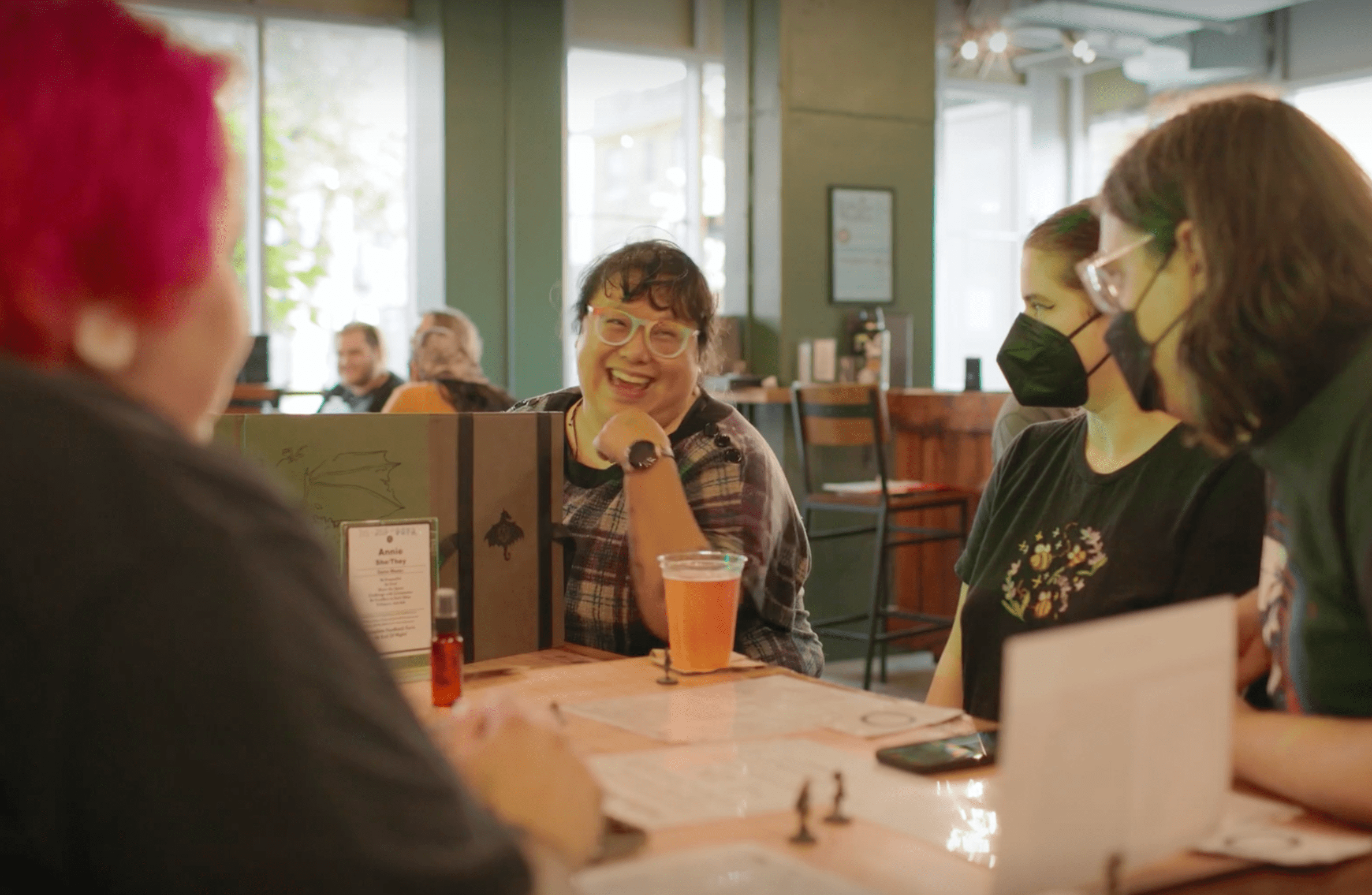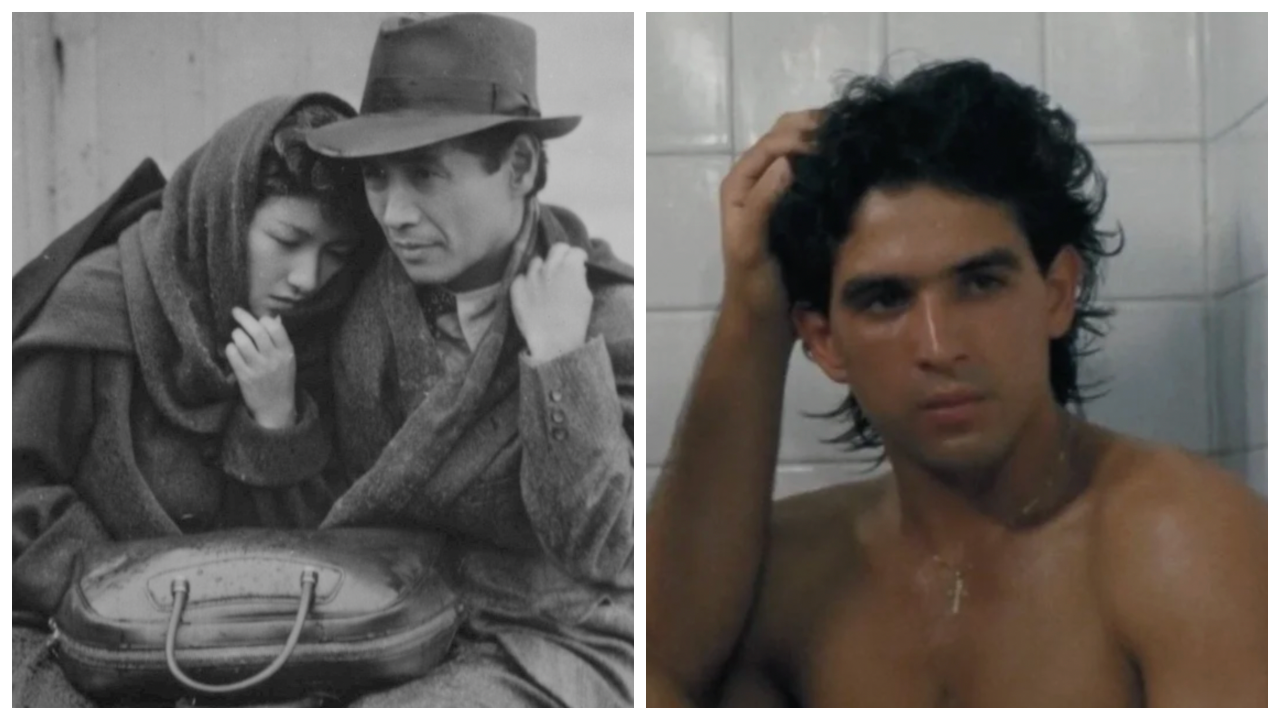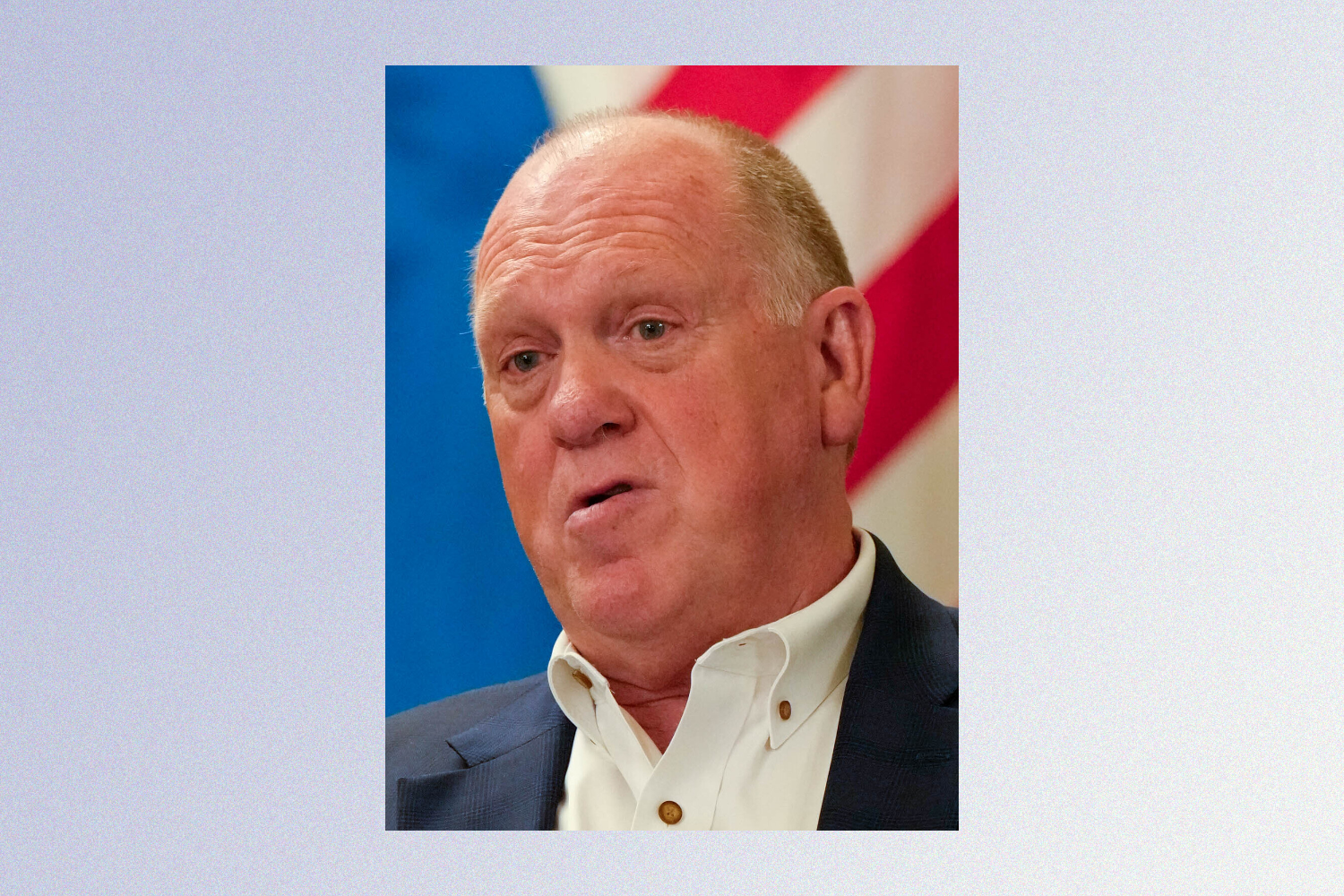In just the past two weeks, I’ve guided people through attempts to catch a serial killer and overseen a revolutionary leader’s dying moments. I’ve encouraged people to dig up dirt on an illicit romance between a four-star general and a renowned scholar of occult studies.
And I’ve done it all from a seat at a table, armed with little more than a rulebook and a set of dice. I’m a professional game master; I lead people through tabletop roleplaying games (TTRPGs).
For those unfamiliar, TTRPGs are collaborative storytelling games in which people play as fantastical characters living in a world controlled by the game master (or GM), who determines the setting, comes up with plot elements, and portrays all of the non-player characters. By far the most well-known TTRPG is Dungeons & Dragons, a combat-heavy game that usually takes place in various fantasy settings à la Lord of the Rings or Conan the Barbarian. But many other tabletop RPGs exist, from paranormal teen romance in MonsterHearts to gritty revolution and political intrigue in Spire: The City Must Fall to edge-of-your-seat horror in Dread.
In an ideal world, there would also be a group of players for everyone, but far too often that isn’t the case—and that’s where professional game masters come in.
“It’s really hard to get into tabletop role-playing games unless you know someone who's into tabletop role-playing games,” says Grand Mastress Renee, founder of Dragons, Dungeons, & Drinks, which hosts gaming meetups in breweries around town. “For people who have never played a TTRPG before, even trying to sign up for a game in a gaming store can be a little intimidating. I know a lot of people enjoy bar trivia or bingo or things like that, so that’s really where the idea ‘We could do D&D in a bar’ [came from].”
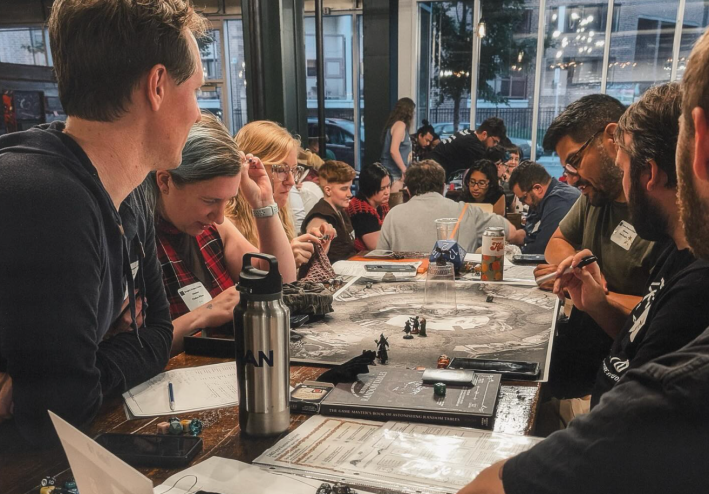
The number of professional GMs is on the rise in the Twin Cities, with several new businesses launching in the past few years. The increased popularity of TTRPGs—partially due to shows like Stranger Things and web series like Critical Role and Dimension 20, where viewers watch players make their way through an actual campaign—has led many to seek opportunities to play.
For Sortilege founder Jordan Peacock, his approach is not only about helping new players find their footing but also about introducing new game systems in a field dominated by Dungeons & Dragons.
“I started collaborating with Tower Games, and at the time it was bi-weekly ‘learn to play’ events for different role playing games that weren't Dungeons & Dragons,” says Peacock of the Minneapolis-based Sortilege. “And that's kind of the ethos that I've continued with, which is the idea of running local events. [We do] some online stuff, but preferentially local, preferentially people who aren't already in the hobby, and preferentially genres and systems that are outside of the mainstream fantasy and D&D space. I’m really trying to widen that space of who's exposed to this medium, who gets a chance to play, and what kind of stories get to be told.”
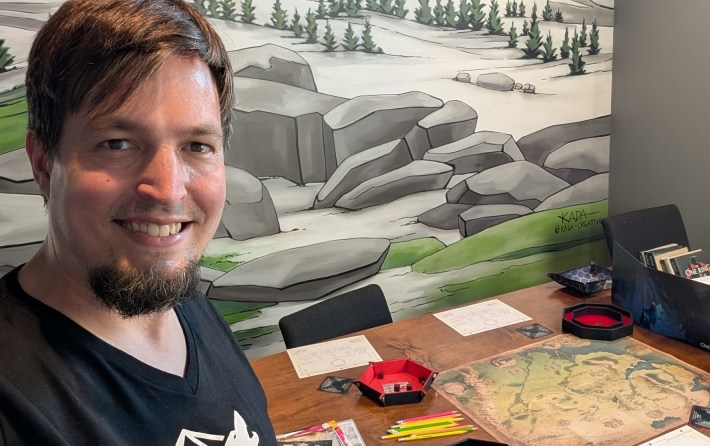
Beyond new players and new systems, there’s also a third reason why people might seek out a pro GM: Some players are looking for a more elevated experience, one where the world their characters live in is brought to life by someone with performing arts chops who can go the extra mile to enable more immersive roleplay.
Game masters like Aabria Iyengar and Brennan Lee Mulligan have proven that TTRPGs can be just as much a form of theater as a game. “The Mercer Effect,” named for Critical Role’s game master Matthew Mercer, was coined to describe players with raised expectations of GMs.
But this term may be a bit of a misnomer, as players can be just as much a part of creating that elevated experience.
“[Critical Role’s] success is because of [cast members] Sam Riegel and Travis and Laura and other outstanding players,” says Chase McCallister, founder of Bad Wolf Adventure Studios. “Places like Bad Wolf or other pro GM spots attract people who are willing to put their money out there and show up with the commitment to give those performances too. The Mercer Effect is one part, but really that's a great table full of amazing actors.”
A similar collaborative spirit can be seen in the camaraderie between pro GMs. While many entertainment industries are competitive, every GM I interviewed reported no such attitude in the Twin Cities gaming scene.
“We are stronger together,” says McCallister. “We go to each other's events. Jordan [Peacock] is one of the game masters for Bad Wolf … and he's actually gonna be piloting Powered By Bad Wolf going forward.”
McCallister is referring to Bad Wolf’s newest collaboration program, which is designed to give GMs access to Bad Wolf’s resources and marketing reach even if they aren’t working as one of Bad Wolf’s in-house GMs.
@badwolf.adventure.studio Who’s excited for #dungeonsanddragonshonoramongthieves this weekend? After the movie, plan your own #dungeonsanddragons adventure with Badwolf Adventure Studios! #dnd #dndtiktok #dnd5e #dndtok
♬ original sound - Badwolf Adventure Studio
“I really try to take the approach that we all do better when we all do better,” says Game Masteress Renee. “Recently we went to Bad Wolf's store opening, and it was just so heartwarming to see one of my GMs go and give a huge big hug to one of the Bad Wolf GMs. I think that in many spaces there might be sort of a scarcity mindset. But I actually really think that everyone sort of fills their own niche and there are all more than enough people wanting to play D&D … it creates a little bit of a mosaic within the Twin Cities that I think is quite beautiful.”
Running a business in the gaming industry isn’t just a bed of roses, however. Like any venture, there are challenges.
“The first challenge is just boundaries,” says Renee. “Boundaries with players, boundaries with GMs, boundaries with other entities within the space, but also some personal boundaries. How much time and attention can I give to this while balancing my self-care and the other important aspects of my life?”
Renee’s words ring true; this is a difficulty that even hobbyist GMs report. The term “bleed” has been coined to describe in-character behavior influencing out-of-character behavior and vice versa. A variety of safety tools can be employed, such as Lines and Veils, where players agree some types of content will never come up (lines) while other situations that arise may fade to black before getting too graphic (veils). There’s also the X Card, where a player can touch a card with an “x” on it to pause gameplay, and the Palette of Permission, a four-block grid where the x axis represents how carefully players should tread on certain topics while the y axis is used to show how a player wants handle certain topics when they come up in gameplay.
These are all tools used to ensure that GMs and players don’t accidentally cross boundaries at the table while also safely exploring difficult or complex topics participants might find rewarding.
“I think the other thing that's been really challenging is the rate of explosiveness of our growth,” Renee continues. “It's gone from like, zero to 60 instantly. I don't want to sound ungrateful, but it's also a management issue ... I’ve formed a leadership team in the last year because I was finding that it was too much for me to handle just by myself.”
It wouldn’t be an article about TTRPGs if we didn’t address the elephant (or rather, the dragon) in the room. Wizards of the Coast, the company that currently publishes Dungeons & Dragons, has lost a lot of goodwill with audiences over the past several years thanks to a number of scandals. This video does a good job of summing them all up, but the more noteworthy ones include unsuccessfully attempting to roll back their Open Gaming License, sending a Pinkerton to a customer’s house after a shipping mixup, and using AI in products after banning it and claiming all work was human-made.
In an industry where Wizards’ parent company, Hasbro, is the sole large corporation in a sea of small-to-medium indie companies, this raises the question: How dependent must pro GMs be on Dungeons & Dragons in order to make a living?
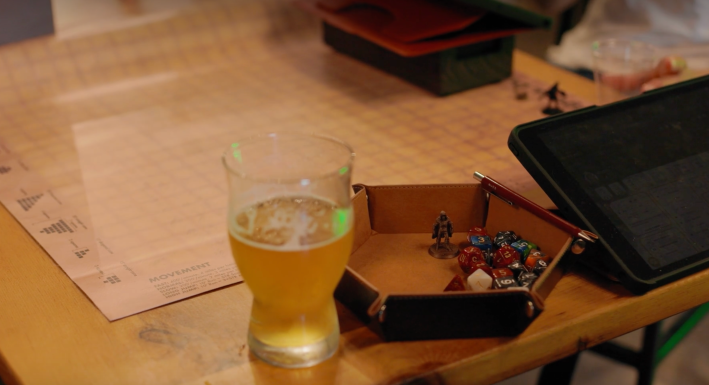
“We don't want to become this raging capitalist machine,” says McCallister. “My goal here is to make sure that professional game masters can exist, and that they get paid fair wages, they get access to running games. Dungeons & Dragons is ubiquitous with the scene, so I hope to push a scene in Minnesota that understands that if Wizards starts to go the way of disrespecting the players and the people running it, that we don't need it.”
“The reason that we chose D&D as our game of choice was because it's just the most accessible … There's just no denying that Dungeons & Dragons is what the overculture thinks of when they think of role-playing games,” says Renee. “I also think that accountability is super important, and if it came to a point where we felt like Wizards of the Coast doesn’t reflect the values we hold dearest, then it might be that we have to explore other games. Because at the end of the day, we are not loyal to D&D—we are built on play, storytelling, and making friends.”
Some have taken a more hardline stance.
“I haven’t given Wizards any money since 2022,” says Peacock. “I don’t browbeat others who haven’t made the same decision. I understand that it would have been easier for me to ramp up if I hadn’t.”
Peacock does still run D&D on occasion, albeit using Wizards’ Creative Commons SRD. For the most part, though, he’s found success in going against the grain.
“I know a lot of people are D&D-exclusive or at least dominant … so I use that as a differentiator. In fact, I was at Dragons, Dungeons, & Drinks’ Fantasy Tavern event and was right across from someone who runs D&D and Pathfinder. So you could go in and meet him, and then I’m there as the ‘everything else’ guy.”
Hopefully we’ll see change on the horizon in the larger TTRPG industry soon. For now, though, what’s next locally?
“In April, we had our first social hour in Duluth. And so we're now talking about doing our first adventure and basically recreating what we've done in the Twin Cities in Duluth,” says Renee. “Another thing I'm really proud of is that we have developed a partnership with the Twin Cities Pride organization. And that has been an awesome opportunity for providing adventures that are particularly LGBT inclusive. While all of our events are structured to be inclusive, for some people it feels even more welcoming to be in a space that is primarily built for that.”
“We keep raising that bar of what it means to be a professional game master, which lets us show that this is a real field that deserves respect,” says McCallister. “We deserve to be paid living wages. We want to see artists succeed, so we want to be a part of that coalition of helping people build up.” (Bad Wolf will also be at the Minnesota Renaissance Festival this summer.)
“I think we're very lucky to have such a lovely community here in the Twin Cities,” says Renee. “I go to a lot of other places and it’s disparate; there's a home game over here and a store game over there, but there's nothing that sort of brings them all together. We have something very special going on here.”
